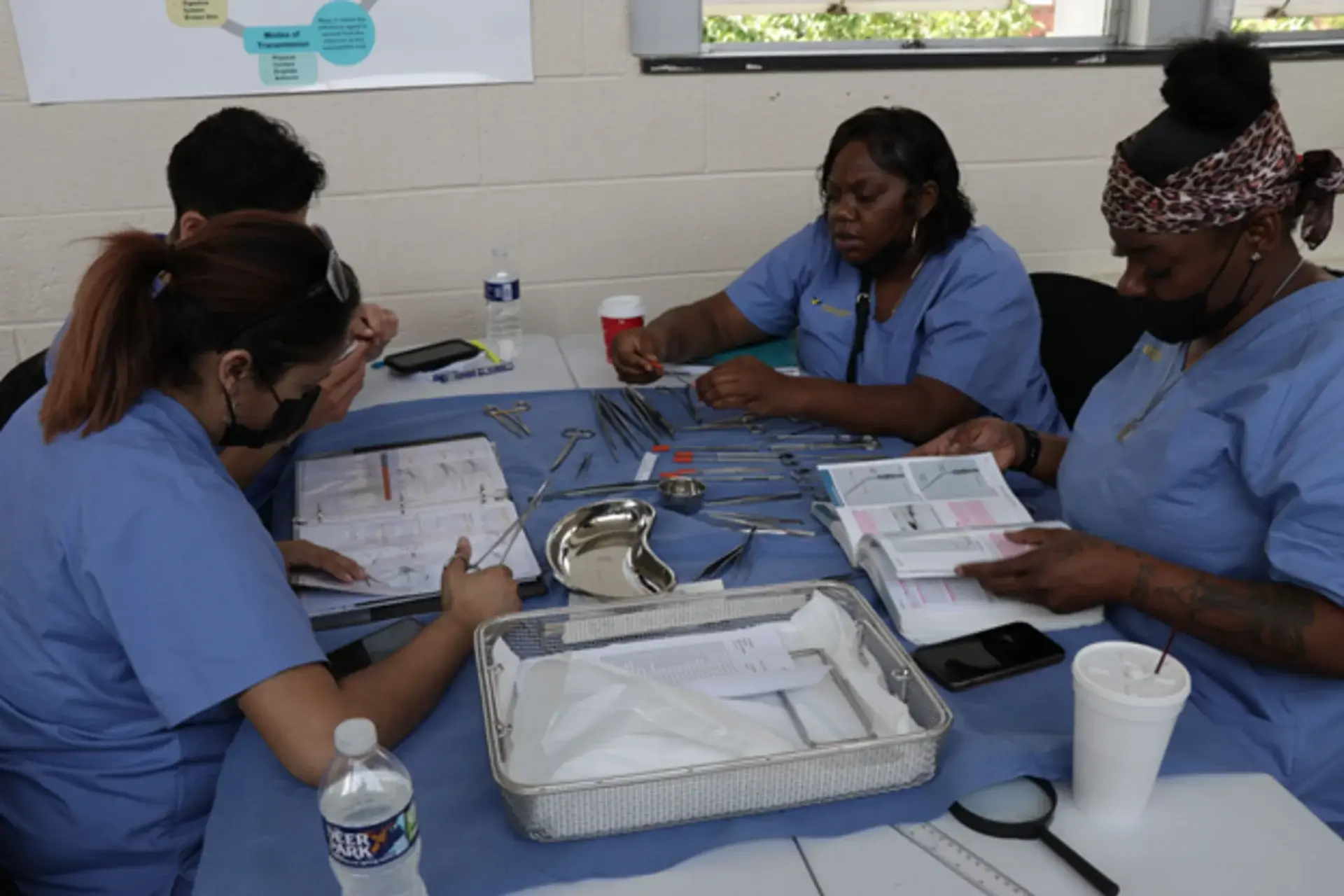When people think about surgery, they picture doctors and nurses: bright lights, busy hands, and someone fighting for life. But hardly anyone thinks about the people behind the curtain who make the surgery safe and successful in the first place. They are our ‘sterile processing technicians’. Today, we will try answering some of the common questions lingering around this industry. These can be- What is the sterile processing technician’s salary really like? Is it fair for the amount of responsibility they carry? Is this job secure for the future?
In this blog, we’ll try to explain what they do, how much they earn, and why hospitals can’t run without them. We’ll also break down the salary of a sterile processing technician in simple terms.
Surgeons cannot perform their tasks without clean tools. Even the smallest tool, such as a clamp or scissors, must be sterilized. If not, the patient could get an infection. It’s not just about surgery either. Emergency rooms, dental clinics, and even outpatient centers all need sterile instruments.
Technicians spend hours preparing and checking trays. They wash, inspect, and wrap them. Every single piece must meet safety standards. That’s why this job is far more critical than people realize. Without sterile processing, hospitals would cease to function.
People think sterile tech jobs are easy or boring. Honestly, that’s not true. Every day feels different. One day, a technician might work with heart surgery trays. The next day, it could be a bone fracture. Each tray can have over fifty instruments. Every single one has to be in the correct place.
If even one is missing, the surgery could be delayed. If one isn’t sterile, the patient may be at risk. So the job isn’t just about cleaning—it’s about responsibility. It’s also physical. Techs stand for long hours. They lift heavy trays and move fast between stations. Machines beep, washers run, and trays pile up. Still, there’s pride in knowing their work saves lives.
So, how do people get into a sterile processing career? Usually, it starts with training programs. These programs don’t take years like nursing school. They focus on infection control, microbiology, and sterilization. Students also practice with real trays and autoclaves.
After training, most people take a certification exam. Once you’re certified, you can apply to hospitals, surgical centers, or clinics. The good thing is that demand is so high that jobs open quickly.
Later, technicians can grow into leadership roles. Some even use sterile processing as a stepping stone to become a surgical technologist or nurse. The path is flexible, but the base skills never lose value.
Now, let’s get to the money side. What is hospital technician pay in 2025 really like?

According to recent reports, hospital technician pay in 2025 in the USA has been going up. Hospitals need workers badly, and they’re willing to pay more to keep them. Even people who have just started can earn a good income. Shifts like nights or weekends usually come with extra pay. Holidays often pay more, as well. Over time, the numbers really add up.
Compared to other health careers, the income is solid. Training is shorter, but the pay is competitive. That’s why many people view this as a smart entry point into healthcare.
The truth is, central sterile processing jobs are not going away. In fact, they’re growing. Why? Because every surgery, every instrument, and every tray must be sterile.
Regulations are strict. Hospitals can’t skip safety steps. With more surgeries taking place, the demand continues to increase.
Another reason is retirement. Many experienced technicians are leaving the workforce. This opens even more jobs for new people. Even when the economy struggles, hospitals cannot stop sterilizing instruments. That’s why this career is stable.
Of course, a sterile processing career is about more than wages. Many hospitals also provide health insurance, retirement plans, and sometimes tuition reimbursement. On top of that, there’s overtime pay. Evening and weekend shifts bring bonuses. It’s not unusual for technicians to end the year earning much more than their base salary.
Through continuing education, they can advance and earn even more. Some specialize in complex instruments or become trainers. While the base pay is good, the growth opportunities make it even more attractive.
Let’s take a closer look at the salary of a sterile processing technician. The pay isn’t the same everywhere. Cities with big hospitals usually pay more than smaller towns.

The average range is enough for a comfortable life. Add overtime, and many technicians do even better than expected.
Compared to nursing, the salary is lower. However, when you consider the cost of training and the time it takes, the balance becomes clear. In other words, it’s good pay for the amount of time invested.
The impact of central sterile processing jobs is enormous. Without them, surgeries would be unsafe.
A dirty tool could cause a severe infection. That infection could keep a patient in the hospital for weeks. It could even cost their life.
Looking ahead to the next decade, sterile tech jobs are expected to continue growing.
Automation might help with cleaning, but people are still needed. Machines can sterilize, but only humans can check details, catch mistakes, and ensure safety.
Robotic surgeries are increasing. So are transplants and orthopedic operations. All of these require complex tools. More surgeries mean more trays, and more trays mean more technicians. This job will not disappear anytime soon. For students considering a career in healthcare, it’s a safe bet.
When you consider all factors, the salary of a sterile processing technician is fair for the responsibility. Over time, benefits and job stability make it even stronger.
It’s one of the few healthcare jobs where training doesn’t take years, but the rewards still feel real. People in this field know their work matters.
Doctors and nurses often get the spotlight, but they can’t do their jobs without sterile instruments. That makes sterile processing technicians the hidden backbone of surgery. The career is stable. The pay is solid. The opportunities keep growing. And above all, the work saves lives. So, when you hear about the sterile processing technician salary, remember it’s not just about money. It’s about trust, safety, and the unseen people who keep hospitals running.
Read More: